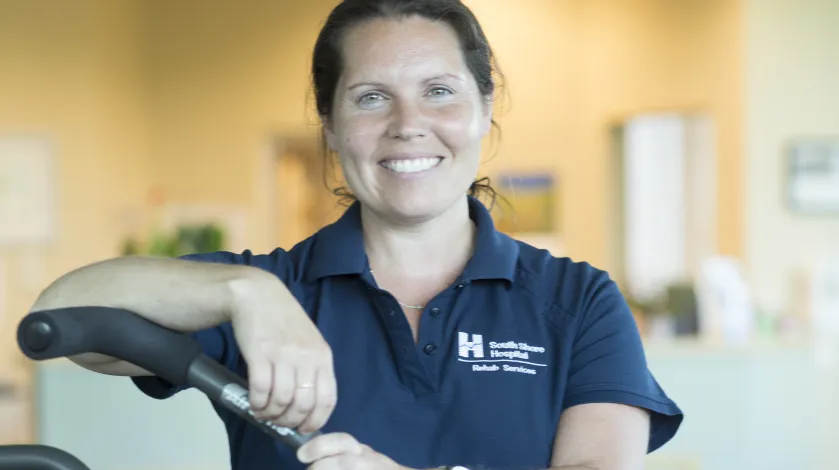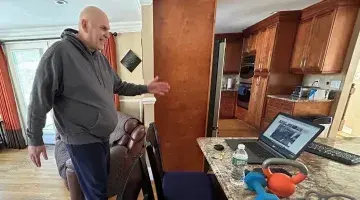An Integrative Approach to Cancer Care
Author

South Shore Health
Many cancer patients use complementary and/or integrative therapies during and beyond cancer treatment to manage symptoms, prevent toxicities, and improve quality of life. We talked to expert, Jen Logan, MS, MHA, Community and Aquatic Programs Manager at South Shore Health to answer some frequently asked questions about Integrative Therapies in the life of an oncology patient.
What is the most rewarding part of your job when working with cancer patients?
Although I only play a small part in what cancer patients are going through in their overall treatment and survivorship goals, having the opportunity to help improve someone’s physical and emotional wellbeing at such a difficult point in their life is incredibly rewarding. The exercise and the physical component of integrative therapy is a way for cancer patients to gain more energy and a bit more control over their wellbeing. When a patient attends a group class, the setting allows them to interact with others going through a similar health journey, and there’s a psychosocial component that allows opportunity to connect and build relationships with the other people in the class. I enjoy seeing the wonderful bonds formed.
What types of Integrative Therapies are available for cancer patients?
While it’s important to talk with your healthcare team before starting anything new especially during treatment, there are many safe integrative therapies available to help improve physical and emotional wellbeing including:
- Physical Activity. As a leader in exercise physiology, I design classes for cancer patients in an individual or group setting to help build strength and endurance, relieve pain associated with treatment, help diminish fatigue and anxiety, and any cancer-related stress.
- Yoga. Found to help regulate stress hormones and improve mood and physical well-being, while also helping to reduce pain, fatigue, nausea, sleep problems, and inflammation that sometimes come with cancer treatments. Yoga uses breathing exercises, meditation, and poses to stretch and flex different muscle groups.
- Acupuncture. This type of therapy involves the use of very tiny needles and/or pressure to stimulate points on the body. Research shows that acupuncture releases chemicals, such as beta-endorphin and serotonin, in the brain to relieve pain or help reduce chemotherapy-induced nausea and vomiting.
- Reiki. Many mind and body practices can greatly improve quality of life—especially with regard to stress management both during and after treatment.
- Massage. Research shows that massage can: reduce pain, decrease tension and stress, help with recovery after surgery, ease anxiety and depression, and generally help people feel better during challenging times.
What can cancer patients and survivors expect from integrative therapies?
Seeing patients at different stages of active treatment and survivorship over the years, I have found it’s not unusual for some patients to get discouraged or feel down during a difficult point along the way. I have also found when they are motivated to add some modest changes to lifestyle and routine to improve their health and wellbeing, they often find that silver lining in adding one or more integrative therapies to their care plan. Oncologist-approved therapies help encourage healing while supporting the immune system to address fatigue, lack of appetite, and toxicity—that comes from chemotherapy or other more aggressive cancer treatments. Improvement in quality of life is almost always the end result and that continues to be my goal with each cancer patient.
Please note that while Jen Logan and our expert Integrative therapists have training and experience in cancer management and treatment, they are not oncologists. We will actively coordinate any integrative service with a patient’s oncologist and other treating physicians to ensure patients have an active team supporting their care.
To schedule an appointment please call 781-624-5000 to speak to Arianna Cash, the patient and family education coordinator for our cancer program.
Author

South Shore Health







